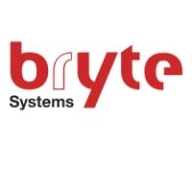

MongoDB Atlas and BryteFlow SAP Data Lake Builder compete in data management solutions. MongoDB Atlas seems to have the upper hand due to its broader application scope and cost efficiency, while BryteFlow is more feature-rich in SAP integration.
Features: MongoDB Atlas provides scalability, distributed database support, and efficient data management. BryteFlow SAP Data Lake Builder offers automated data lakes, real-time replication, and specializes in SAP data integration tasks.
Ease of Deployment and Customer Service: MongoDB Atlas has a straightforward cloud-based deployment with extensive support options. BryteFlow SAP Data Lake Builder requires a more complex setup but offers robust customer service.
Pricing and ROI: MongoDB Atlas is cost-effective with a scalable pricing model optimizing ROI for various workloads. BryteFlow SAP Data Lake Builder involves higher initial costs but promises substantial ROI for SAP-focused organizations.

BryteFlow SAP Data Lake Builder is a powerful tool designed for managing and integrating SAP data into data lakes efficiently, offering an optimized approach to handle complex data environments.
With BryteFlow SAP Data Lake Builder, businesses can streamline data processing tasks by enabling seamless integration and management of SAP data. It automates data extraction, transformation, and loading processes, enhancing data accessibility while reducing time to insight. The tool is tailored for enterprises looking to optimize their data lake strategies by minimizing data latency and ensuring scalability in high-volume data scenarios.
What are the key features of BryteFlow SAP Data Lake Builder?BryteFlow SAP Data Lake Builder is implemented across diverse industries such as retail, finance, and healthcare, where data integration speed and reliability are crucial. In retail, it supports real-time inventory management; finance sectors benefit from quick data processing for market analysis, while healthcare organizations leverage it for managing vast patient data sets, improving data-driven decision-making.
MongoDB Atlas stands out with its schemaless architecture, scalability, and user-friendly design. It simplifies data management with automatic scaling and seamless integration, providing dynamic solutions for diverse industries.
MongoDB Atlas offers a cloud-based platform valued for its seamless integration capabilities and high-performance data visualization. It features advanced security options such as encryption and role-based access control alongside flexible data storage and efficient indexing. Users benefit from its robust API support and the ability to manage the platform without an extensive setup process. Feedback suggests improvements are needed in usability, query performance, security options, and third-party tool compatibility. While pricing and support services could be more economical, there is a demand for enhanced real-time monitoring and comprehensive dashboards, as well as advanced containerization and scalability options supporting complex database structures.
What are the key features of MongoDB Atlas?In healthcare and finance, MongoDB Atlas manages payment transactions and facilitates real-time analytics, powering SaaS solutions and storing large volumes of user data. It enhances scalability, performance, and security for cloud hosting, IoT integrations, and Node.js environments, widely favored for its flexibility and capability to support microservices.
We monitor all AWS Marketplace reviews to prevent fraudulent reviews and keep review quality high. We do not post reviews by company employees or direct competitors. We validate each review for authenticity via cross-reference with LinkedIn, and personal follow-up with the reviewer when necessary.